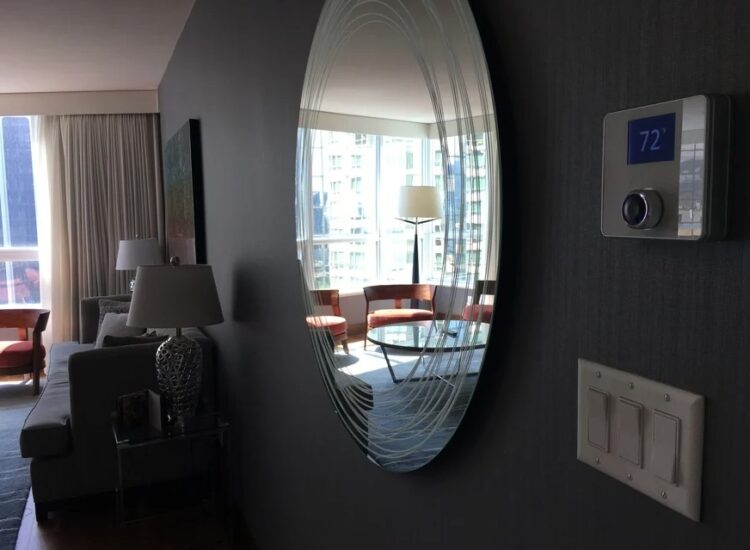The need for a seamless guest experience drives the hotel industry. From humble inns offering weary travelers a place to rest, to grand luxury hotels designed to pamper guests with opulence and unparalleled service, the evolution of the hospitality sector has consistently aimed to meet and exceed the expectations of its patrons.
Over time, with the rapid advancement of technology and the ever-growing demands of a globalized world, hotels have had to adapt and innovate to stay relevant and maintain their competitive edge.
In recent years, the adoption of cutting-edge digital tools and technologies has accelerated unprecedentedly, revolutionizing how hotels cater to their guests. Technology has become an indispensable component in the hospitality industry, from the seamless integration of mobile check-in processes to the incorporation of smart room automation.
As we journey through the digital age, technology opens up new possibilities, reshaping the hotel landscape and redefining what it means to deliver an exceptional guest experience.
Today, we will explore how hotels can harness these innovations to enhance guest experiences and stay one step ahead of the competition in an industry that never sleeps. Let’s take a closer look at how these technological advancements are set to redefine how we travel and experience hotels worldwide.
1. Artificial Intelligence and Machine Learning

Artificial intelligence and machine learning have revolutionized the hotel industry by enhancing guest experiences and streamlining hotel operations. Hotels use AI-powered chatbots to provide personalized recommendations and answer real-time guest queries. In addition, machine learning algorithms are being used to optimize hotel operations, such as staffing and inventory management.
One example of such technology is hotel housekeeping management software, which automates and streamlines the housekeeping process. With this software, housekeeping staff can manage room assignments, track inventory, and communicate with front desk staff more efficiently, saving hotel time and money while improving the guest experience by ensuring that rooms are cleaned and turned over more quickly and effectively.
2. Streamlined Check-in and Check-out Processes
The days of long queues for hotel check-ins and check-outs are over. Hotels can now streamline these processes with the help of technology, making them faster and more convenient for guests. Mobile check-ins are one of the most popular ways hotels do this. Guests can check-in and choose their room before arriving at the hotel and then receive their room key on their phones, eliminating the need to wait in line.
Another innovative technology is facial recognition. With it, hotels can recognize their guests and provide them with a tailored experience. This technology can expedite visitor check-in times and grant access to hotel amenities like swimming pools and spas.
3. Personalized Guest Experiences

Personalization is the buzzword in the hotel industry today, and technology allows hotels to provide a truly personalized experience to their guests. By using guest data, hotels can customize their services to enhance comfort. For example, they can suggest similar dishes from previous orders and tailor room settings like temperature and lighting accordingly. This ensures that visitors have a truly personalized experience each time they visit.
Some hotels are taking personalization even further by providing guests with wearable devices that allow them to control various aspects of their room settings. These wearable devices can track guests’ preferences for room temperature, lighting, and music they prefer to hear.
With just a few clicks on their wearable, guests can call room service, make restaurant reservations, and even book appointments at the hotel spa or fitness center. The convenience of having all these features available in one place is a big selling point for guests who want to make the most of their stay.
4. Smart Rooms and Smart Hotels
Hotels are leveraging technology to create smart rooms and smart hotels that are more comfortable and convenient for guests. Smart rooms are equipped with devices controlled through a smartphone or voice assistant. Guests can adjust lighting, temperature, and window shades using their voice or a mobile app. Some hotels even use smart mirrors that display weather forecasts, news, and traffic updates.
By integrating the latest technology, hotels are revolutionizing their guests’ experiences. Intelligent sensors monitor occupancy levels to optimize cleaning schedules and minimize energy consumption. Chatbots and virtual assistants can also answer questions while offering individualized recommendations.
5. Energy Management Systems

Hotels worldwide are taking steps towards a more sustainable future by implementing energy management systems. These systems are designed to monitor and control energy consumption, helping hotels reduce costs while minimizing their carbon footprint.
Energy management systems can control lighting, HVAC, and other energy-consuming devices in guest rooms and common areas. For example, the system can automatically adjust the temperature in guest rooms based on occupancy and outside weather conditions, reducing energy consumption and costs.
These systems can also be used to track energy usage patterns and provide insights that can be used to make informed decisions about energy efficiency.
6. Virtual and Augmented Reality
Using virtual and augmented reality, hotels can provide guests with a more interactive experience when showcasing their amenities. Through immersive tours of the hotel’s properties, they can transport them to a dream-like world to explore luxurious spas, top-of-the-line gyms, and exquisite restaurants without stepping outside.
It allows guests to explore hotel amenities and spaces before they book, offering them a vivid preview of what to expect from their stay.
7. Cybersecurity and Data Privacy

Cybersecurity and data privacy has become a top priority for hotels in the age of digital transformation. With the increasing reliance on technology, hotels are implementing robust cybersecurity measures to safeguard sensitive guest information and protect against potential cyber threats.
To combat cyberattacks, hotels are implementing a multi-layered approach to security, which includes firewalls, antivirus software, and intrusion detection systems. Additionally, many hotels invest in cybersecurity training for employees to ensure everyone knows the risks and can take the necessary precautions.
Data privacy is another critical concern for hotels, as they collect and process vast amounts of guest data. Hotels are implementing secure Wi-Fi networks and using encryption to protect guest data during transmission and storage.
Conclusion
Technology is transforming the hotel industry, providing guests with more convenient, personalized, and immersive experiences. From streamlined check-ins and smart rooms to virtual reality and artificial intelligence, hotels are using technology to stay competitive and meet the changing needs of their guests.
As the hotel industry evolves, technology will play an even more significant role in shaping guest experiences and managing staff.
 Hi Boox Popular Magazine 2024
Hi Boox Popular Magazine 2024



